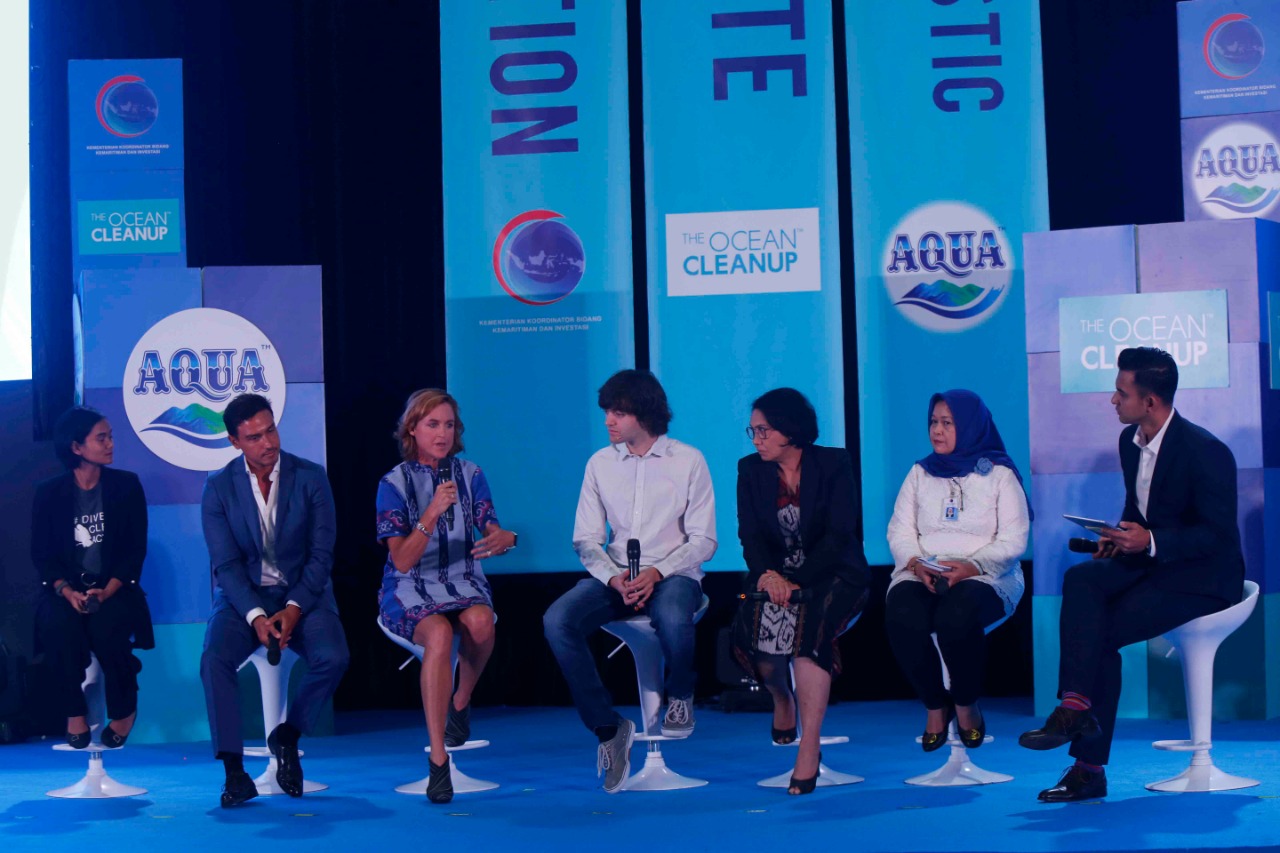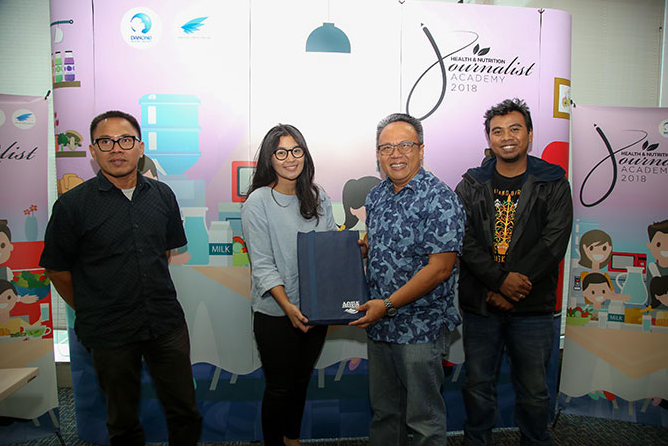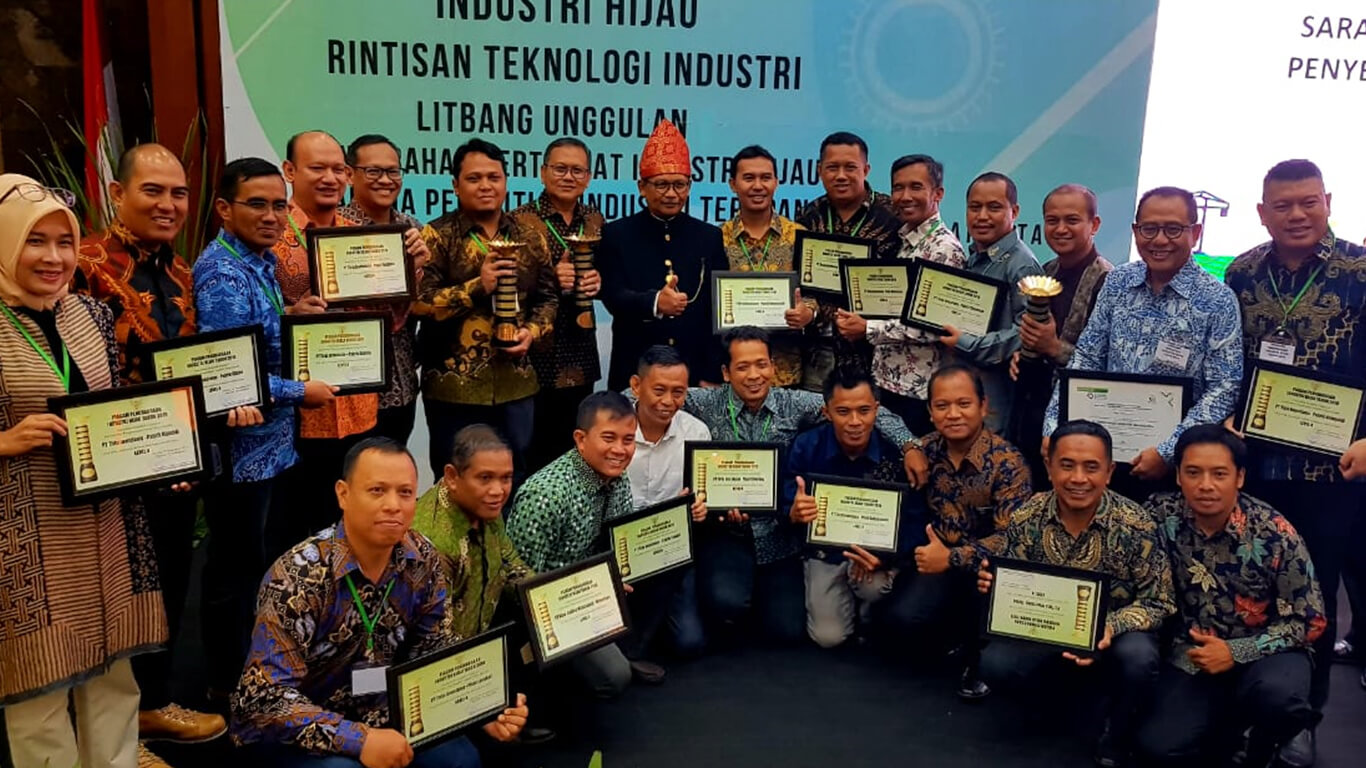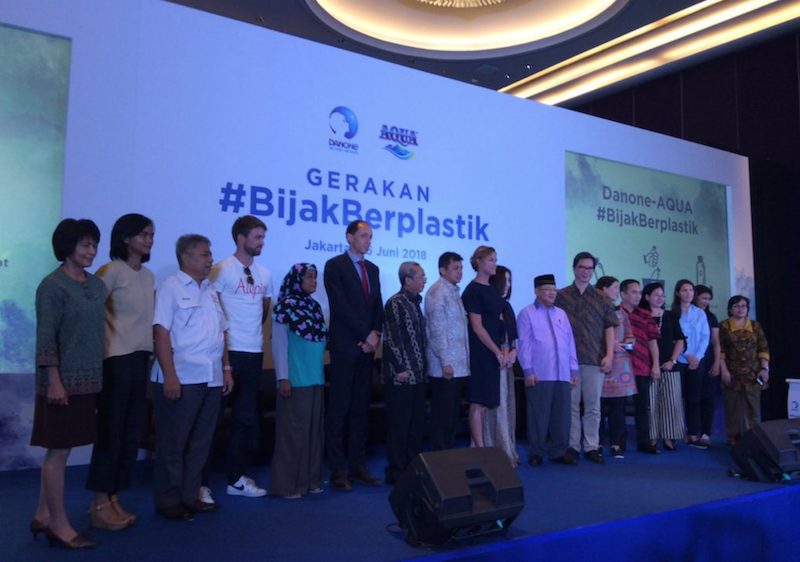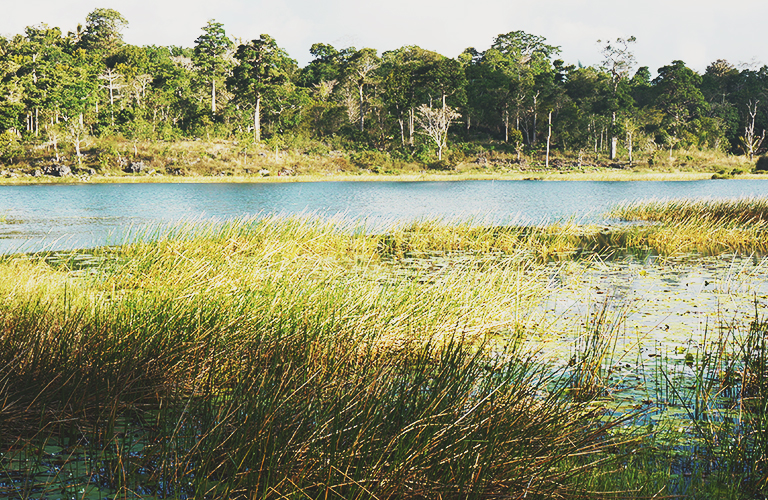- Interceptor 001 is the first system developed by The Ocean Cleanup to prevent plastic waste from entering the ocean.
- Danone together with AQUA in Indonesia partner ed with The Ocean Cleanup in the research project and pilot of the world’s first Interceptor implementation in Jakarta .
- Participation in this research mission has been part of a broader pledge for AQUA to recover more plastic than it uses and foster recycling culture in Indonesia through our #BijakB erplastik campaign
Jakarta, 31 October 2019 – Danone-AQUA (AQUA) together with The Ocean Cleanup, a non-profit organization developing advanced technologies to rid the world’s oceans of plastic, endorsed by the Coordinating Ministry of Maritime Affairs and Investment as well as Jakarta Provincial Government today unveil the result of research on plastic interception from rivers using Interceptor 001. It is the first scalable solution to prevent plastic from entering the country’s oceans from rivers.
Stationed in Cengkareng drain, Pantai Indah Kapuk Jakarta, the system is environmentally friendly and 100% solar-powered, with onboard lithium-ion batteries that enable it to operate day and night without any noise or exhaust fumes. The system helps to extract plastic from rivers, and prevents the waste, which will be sorted, from going to the ocean.
Four Interceptors™ have been built to-date; two systems are already operational in Jakarta (Indonesia) and Klang (Malaysia). A third system is soon to be installed in Can Tho in the Mekong Delta (Vietnam), while the fourth is destined to be deployed in Santo Domingo (Dominican Republic). “To truly rid the oceans of plastic, we need to both clean up the plastic that is already out there, and at the same time ‘close the tap’, and prevent more plastic from reaching the oceans in the first place. Working together with the people of Danone, and combining our systematic approach with existing river cleaning programs by the local government will eventually lead to clean oceans in Indonesia,” said Boyan Slat, Founder and CEO of The Ocean Cleanup.
“Plastic waste is a very significant global issue and it affects not only our environment, but also our economy, tourism and health. Therefore, the government has set a target of reducing 70% of plastic waste by 2025. It is also as important that we need to start managing our waste using circular economy principle aiming at eliminating waste and the continual use of resources that will create economic opportunities for the communities and supporting the economic growth,” said Safri Burhanuddin, Deputy Coordinating Minister for Human Resources, Science and Technology, and Maritime Culture of the Coordinating Ministry for Maritime Affairs and Investment of Republic of Indonesia.
President Director PT Tirta Investama (Danone-AQUA), Corine Tap, said, “It is truly an honor for us to partner with The Ocean Cleanup in implementing the first ever system that will not only prevent the waste from entering our oceans, but also make our rivers cleaner. As an Indonesian-born brand with more than 46 years of experiences, we continue to be innovative and action-oriented to ensure we achieve our goals and bring goodness to the communities. Danone’s partnership with The Ocean Cleanup serves as testament of this commitment and AQUA is proud to co-lead this research project in Indonesia. In line with our pledge to recover more than we use, in 2018, we pioneered to launch a movement called #BijakBerplastik as part of our concrete actions to foster a new culture of recycling and environmental responsibility in Indonesia by working together with our partners and millions of consumers.”
Hamish Daud, an Indonesian celebrity and the founder of Ocean Pride said, “AQUA is truly a pioneering brand which embodies the value of collaboration to create only real positive impacts to the environment. Being an environment-enthusiast, I am very pleased to collaborate with AQUA as a goodness company to create awareness to all Indonesians, including young generation, as the country’s future leaders, to contribute in protecting our environment.”
The Ocean Cleanup started their river project already in 2015. Interceptor 001 is part of a global research partnership between Danone and The Ocean Cleanup that was initiated in January 2018. In Indonesia, the project was initiated in 2018 between the Government of Indonesia and the Netherlands, which was further extended in May 2019 by adding a research program coordinated by AQUA to find the best method to collect plastic waste before it reaches the ocean. The research, which takes place in the same location where the Interceptor 001 is located, was developed with 3 following scopes: 1. Plastic Waste Flow – to identify quality, quantity and typology of the plastic recovered through the Interceptor 001; 2. Facility Design – to identify what is the most effective and safe facility to process the plastic waste; and 3. End Market Solution – to identify available options for recycling/recovery of the plastic waste.
“From the joint research conducted at Cengkareng drain, we learned how the system operates in the local context and design solutions for the efficiency of the machine and the business model. Closing the tap to the ocean is important part of a wider solution to improve waste management in Indonesia. Understanding it’s complexity and threat to our ecosystem, AQUA has worked with the government, wastepicker communities and relevant stakeholders to collect 12,000 tons per year for recycling, through six collection centers, which are developed by AQUA in partnership with local partners. It was later processed into raw materials for the new bottles. We collect not only plastic waste from land but also from rivers and oceans. We will expand our support for these socially inclusive initiatives to turn packaging waste into a resource, scaling up with additional 10 plastic collection centers, and 10 community waste management facilities. These initiatives will help AQUA to reach it 2025 goals to collect more plastic than we use, use 100 percent recyclable materials and to use 50 percent more recycled materials in our bottles,” added Corine.



